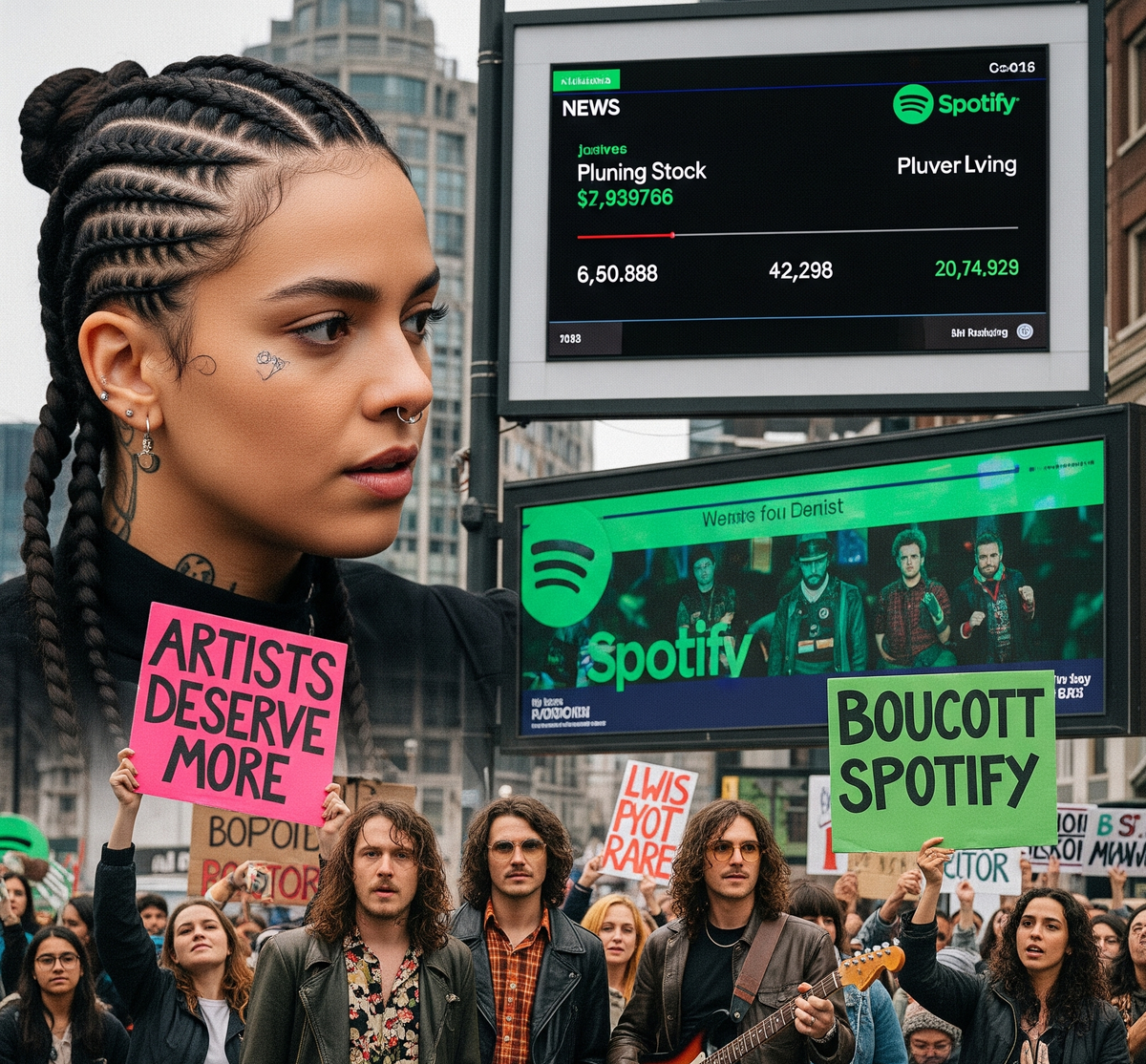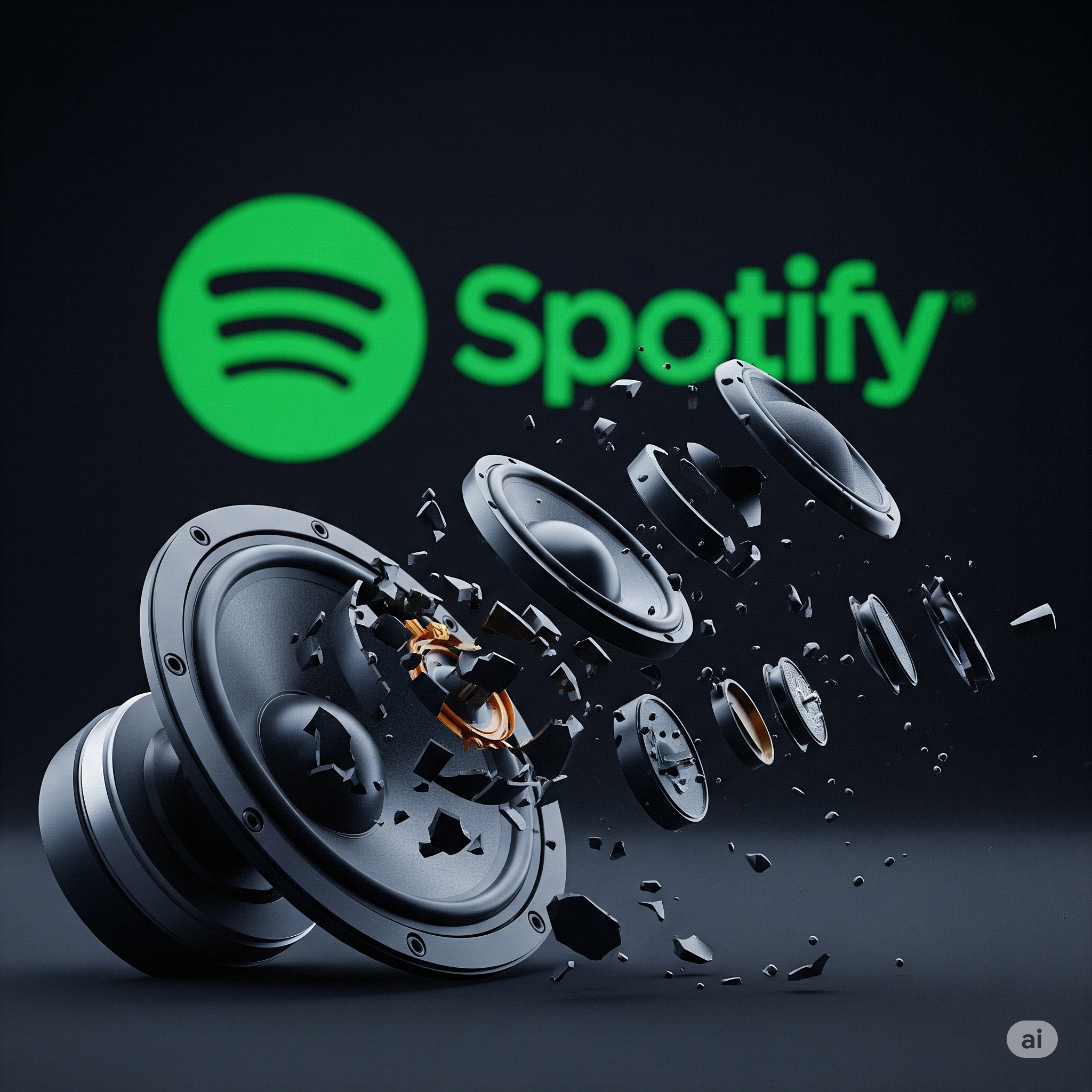Spotify Boycott 2025: Why Artists Are Leaving — And Where They're Going

[LOS ANGELES, CA] — JULY 4, 2025
The music world is bracing for another reckoning. In a week that has sent shockwaves through the streaming landscape, major artists have once again begun pulling their catalogs from Spotify in protest. The cause? A perfect storm of licensing disputes, alleged underpayment, and growing outrage over AI-generated music flooding the platform.
This marks the second major boycott against Spotify in under five years. With hashtags like #BoycottSpotify and #MusicIsHuman trending across Threads and X, fans and artists alike are asking: is Spotify's reign finally unraveling?
The Flashpoint: Why Are Artists Leaving?
The most recent spark came on July 1, 2025, when indie darling Phoebe Bridgers posted a now-viral thread:
"When the algorithms favor AI clones of my voice over my actual art, why should I stay? I'm pulling all my music until Spotify figures this out."
Her exit was soon echoed by others:
- Anderson .Paak: "Music isn't disposable. Treat us like humans, not data sets."
- Lorde: "If my royalties can fund AI that mimics me, I want no part of it."
At the heart of the controversy is Spotify's growing integration of AI-generated music, with leaked screenshots showing entire AI playlists being boosted in discovery algorithms.
A Timeline of Spotify’s Artist Clashes
Using Archive.org, here’s how Spotify’s relationship with artists has unraveled:
- 2014: Taylor Swift removes her catalog, citing unfair payouts (later returned in 2017)
- 2022: Neil Young and Joni Mitchell pull music over Joe Rogan misinformation concerns
- 2023: Indie bands protest algorithmic discovery bias
- 2025: Massive exodus begins over AI-generated music and licensing breakdowns
This isn’t just a flare-up—it’s part of a decade-long pattern of tension between Spotify and the music community.

Google Trends: Tracking the Backlash
A spike in searches for "Spotify artist removal" and "Spotify AI music controversy" occurred between June 28 and July 3, with traffic rising over 850%.
This coincided with multiple think-pieces, creator-led boycotts, and new uploads of artists encouraging fans to migrate to alternative platforms.
What Are Fans and Fellow Artists Saying?
Fan backlash is fierce on Threads:
@IndieLuvr: "If Phoebe's gone, I’m gone. TIDAL gives her more anyway."
@StreamEthical: "Spotify pushing bots that sound like Lorde over Lorde herself is dystopian."
And musicians are turning up the pressure:
@BassBoyBeats: "We're organizing a union-backed boycott. Enough is enough."
A user poll conducted by MusicMatchMag showed that 37% of listeners said they’d consider switching streaming services if their favorite artist left Spotify.
Where Are the Artists Going?
Many musicians are flocking to:
- TIDAL — offers artist-first royalty structures and public artist equity statements
- Apple Music — bolstering human-curated playlists and transparency in earnings
- Bandcamp — allows fans to directly support creators (especially during boycott events)
Singer-songwriter Julien Baker announced her TIDAL exclusive release this week, gaining instant traction.
Meanwhile, Spotify's silence is fueling the fire. Despite requests for comment, the platform has only released a generic press statement reaffirming their commitment to "music innovation through AI partnerships."
The AI Music Dilemma: Innovation vs. Exploitation
At the core of the backlash is a growing fear that Spotify’s AI ambitions will devalue real musicianship.
According to The Verge, Spotify has quietly tested a tool that lets AI replicate the style of any uploaded artist for background tracks, mood playlists, and ad jingles. This tool allegedly uses licensed music as training data.
Dr. Lena Chu, a music ethics researcher, states: "This isn’t just about royalties. It’s about agency, identity, and exploitation of artistic labor."

Industry Response: Labels & Lawyers
Major labels are watching closely. Universal Music Group (UMG) has launched an investigation into how their catalog data might be used to train Spotify’s AI systems.
Sony Music issued a statement warning of “potential copyright violations” if AI-generated music mimics its artists.
Legal experts predict a landmark class-action suit may soon emerge if no transparent guardrails are implemented.
What Happens Next?
Spotify is at a crossroads. With user loyalty shaken and artists defecting to better-paying, ethically-aligned platforms, the streaming giant has only a few choices:
- Double down on AI, risking long-term talent erosion
- Reform payout and licensing models, regaining artist trust
- Launch transparency campaigns and align discovery algorithms with ethical AI use
As of now, fans await a Spotify investor call on July 10 for clarity.
Final Word
The 2025 Spotify boycott isn’t just about money. It’s about values, voice, and the soul of music. When innovation erases authenticity, creators push back—and this time, they might just win.
"Would you switch streaming platforms for artist ethics? Or is convenience king?"
Sources: Google Trends, Archive.org, Threads/X, TIDAL, The Verge, MusicMatchMag, UMG, Sony



